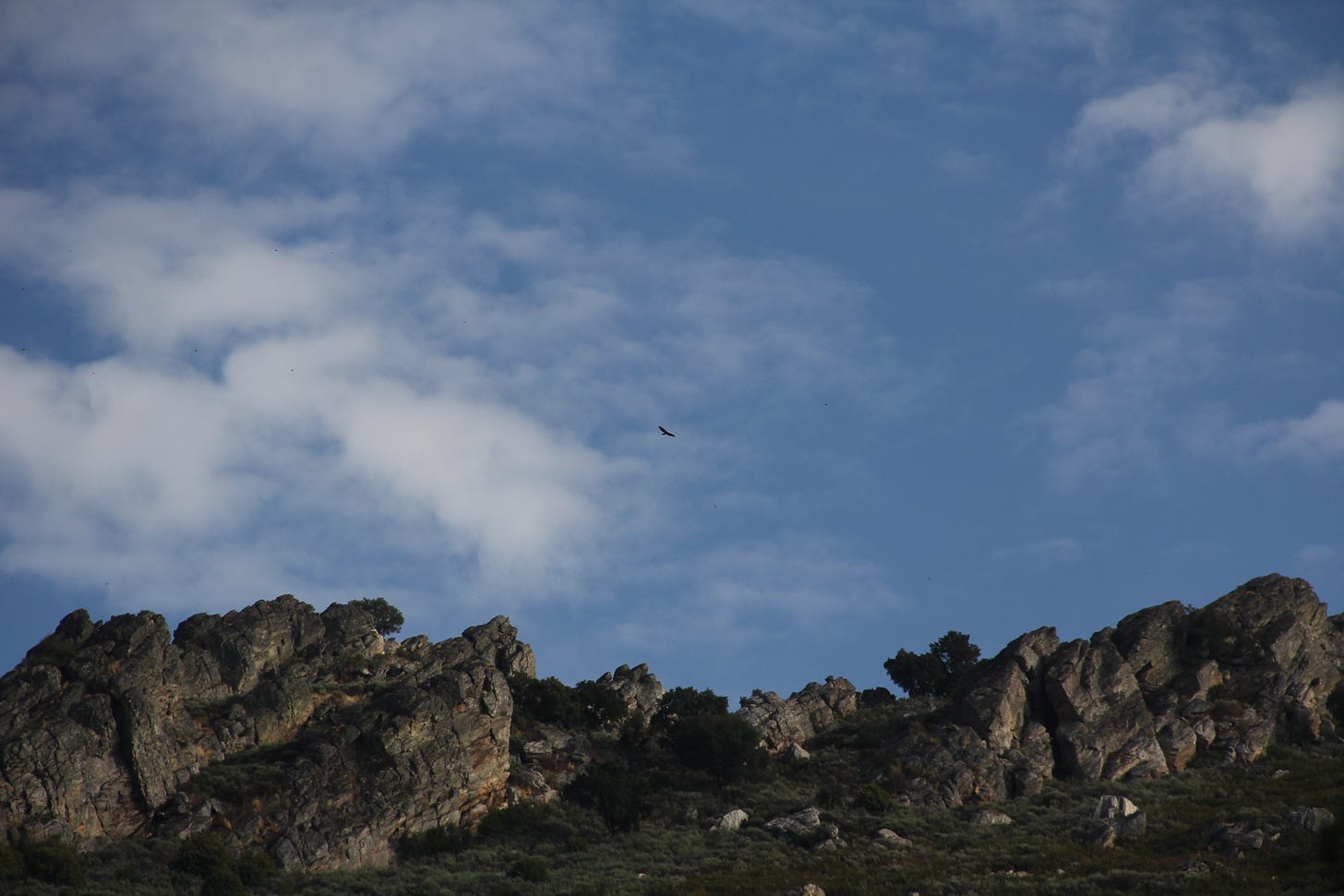Ode to a simple life
Should we want more?
My tenth grade philosophy teacher treated us like adults. He was a shabby man, tall and thin, with silver hair. Rumour had it that he had been a professor at a university and had spent six years writing on an island in Brazil.
We were surprised by the unusual figure, and even more so when he ignored the official textbook and started teaching from Alberto Caeiro's Poems.
I'd never read like that before. We eviscerated each poem, removing the organs that attested to the poet's philosophy. Reading was no longer something that happened in my head, but something that made me travel to the author's head. The time spent on each word made the text more real, instead of taking away its meaning and beauty, as I feared (I'm part of the generation that saw Robin Williams ripping out a book that tried to analyse poetry).
I imagined Alberto Caeiro tall and thin, with silver hair, like the teacher, writing in a bare room, at a desk in front of a window overlooking a field full of spring flowers, with a river in the background. As I write this, I realise that this image has followed me ever since: it's the place I imagine when I'm asked to think of something good, whether it's a nurse before an anaesthetic or a guided meditation.
Alberto Caeiro's poems seemed to be written in a different language to the one spoken around me, but there was something in me that recognised their meaning.
That woman has a piano
That is pleasant but not the running of rivers
Nor the gentle rumble trees make…
What do you need a piano for?
It’s better to have ears
And love Nature.
His words spoke of a simpler life, very different from the one I lived when I was fifteen, and they made it plausible. Someone had published that book, and someone had chosen it to teach in a school. It was possible to think like that, and it was possible to be like that. It was possible to enjoy the rustling of the trees, and that was as reasonable as enjoying a piano.
The other day, I was reminded of these poems, when I came across a post on reddit in which someone asked for examples of films that portrayed a simple life. When I saw the suggestions, I had a revelation: they were almost all films that I really liked (which is very rare on reddit). These are films in which nothing seems to happen, at least on the surface. A good example is Wim Wenders' latest film, Perfect Days.
My fascination with these poems and films, and the admiration I feel whenever I meet people who live a life outside the home-work-home routine, say something about me. And if, when I was fifteen, it seemed impossible to live any other way, now I look back and see that I have slowly freed myself from some «truths».
When I was a kid, I felt that anything was possible, as long as I finished high school, went to college, and found an interesting job where my work was recognised and where I could leave a useful legacy for society. I had no plan B.
The fear of being different from what was dictated for my generation dissolved without me realising it, and with the first breast cancer diagnosis, began a movement that simplified my life. I don't live in a hut in front of a river, but more and more, I feel like appreciating what I have.
I still hear a voice asking me if this is a move into my comfort zone, but (usually) the answer is negative - I feel like I'm living plan B.
I also hear a voice asking me if I «should» want more. We're supposed to want to be recognised for our work, or at least for the person we are. We're supposed to want to leave something that marks our passage, to leave memories in those who stay, right?
Alberto says:
Rather the flight of the bird that passes and leaves no trace,
Than the passing of the animal, that stays remembered on the floor.
The bird passes and is forgotten, and so it should be.
The animal, where it is no more and for that of no use,
Shows that he has been, which is no use at all.
Passing through this life lightly, without a trace, leaves me divided. It's true that we're passing through here, each of us, and humanity, so there's no point in clinging to things and people. The planet will continue its journey around the sun long after the last human being has disappeared. On the other hand, there's a lot of beauty in being human and being able to think about things, give them meaning, create bonds, and be able to remember those who are no longer here.
The poet wouldn't approve of this text - there's too much introspection. He says, «Things don't have meaning: they have existence. Things are the only hidden meaning of things». But a simpler life outside seems to give more space and time for ideas to flourish, and - for now - I feel that there is beauty in things themselves, but there is also beauty in looking for their meaning.
Poems from The keeper of sheep, by Alberto Caeiro, one of the heteronyms of Fernando Pessoa (freely translated by me).


